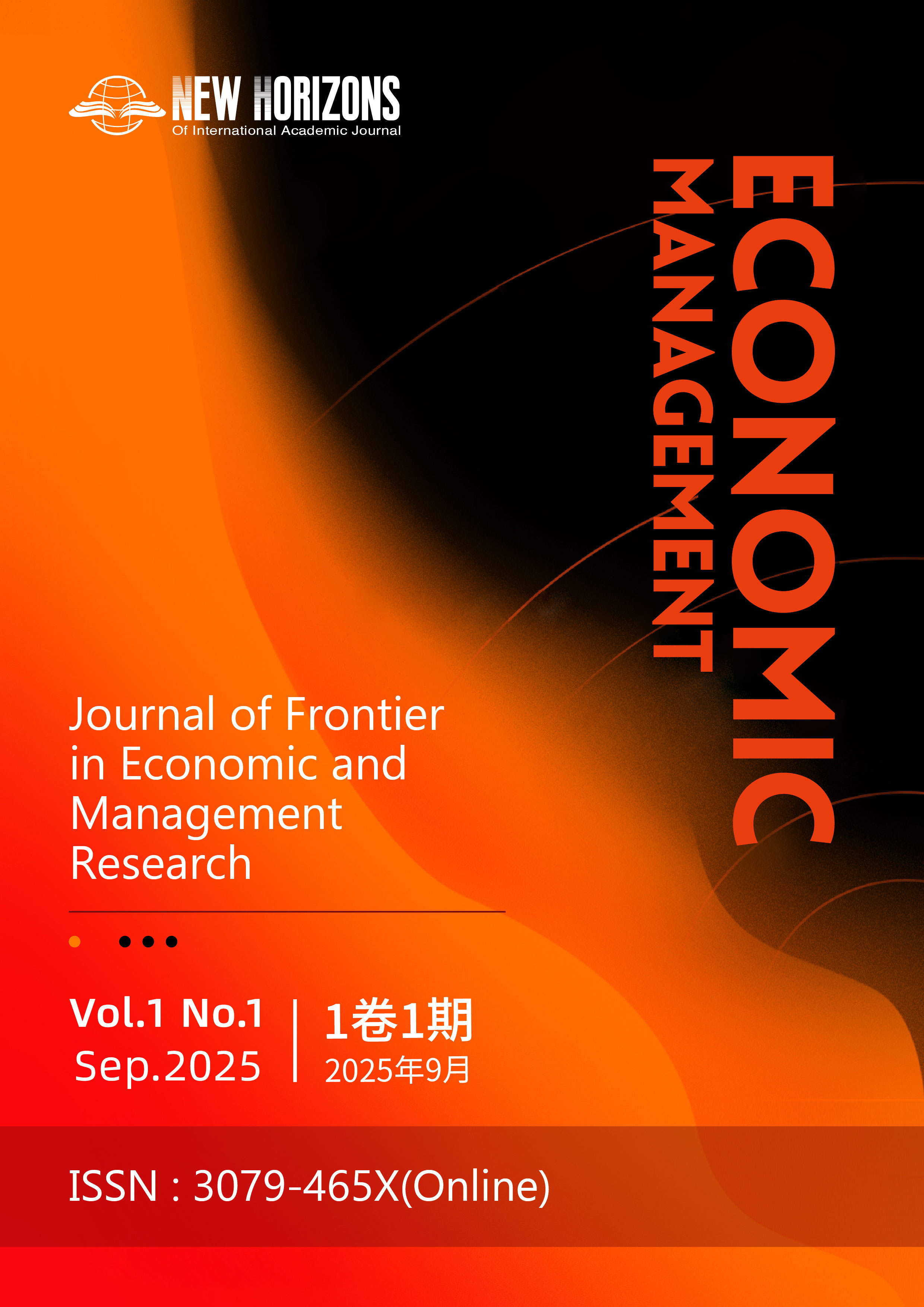[1] Nahar, J., Alauddin, M., Rozony, F., & Rahaman, M. (2024). Big data in credit risk management: A systematic review of transformative practices and future directions. International Journal of Management Information Systems and Data Science. DOI: https://doi.org/10.62304/ijmisds.v1i04.203
[2] Sadula, S. (2023). Integrating big data analytics with U.S. SEC financial statement datasets and the critical examination of the Altman Z’-Score model. Technological University Dublin. https://doi.org/10.21427/KJ3E-FE83
[3] Chang, V., & Li, J. (2018). A discussion paper on the grey area: The ethical problems related to big data credit reporting. In Proceedings (pp. 348–354). DOI: https://doi.org/10.5220/0006823603480354
[4] Liu, C., & Hou, C. (2021). Challenges of credit reference based on big data technology in China. Mobile Networks and Applications, 27, 47–57. DOI: https://doi.org/10.1007/s11036-020-01708-y
[5] Xie, H. (2023). The applications of big data analysis in the credit business of 311 commercial banks. BCP Business & Management. DOI: https://doi.org/10.54691/bcpbm.v38i.4256
[6] Wang, F., Zhang, S., & Li, M. (2020). Influence of internet-based social big data on personal credit reporting. Asia-Pacific Journal of Convergent Research Interchange.
[7] Wang, H. (2021). Credit risk management of consumer finance based on big data. DOI: https://doi.org/10.1155/2021/8189255
[8] Yang, X., Tao, Y., Li, G., & Jun, W. (2018). A theoretical credit reporting system based on big data concept: A case study of Humen Textile Garment Enterprises. In Proceedings of the 2018 International Conference on Big Data and Education.
[9] Ransbotham, S. (2016). Using unstructured data to tidy up credit reporting. MIT Sloan Management Review, 57, 2.
[10] Gao, L., & Xiao, J. (2021). Big data credit report in credit risk management of consumer finance. Wireless Communications and Mobile Computing, 2021, 1–7. DOI: https://doi.org/10.1155/2021/4811086
[11] Cui, D. (2015). Financial credit risk warning based on big data analysis. [Unpublished manuscript].
[12] Sun, B. (2021). Bairong Zhixin: Big data and credit system construction. In Research Papers in Economics (pp. 357–400). DOI: https://doi.org/10.1007/978-981-16-1788-1_10
[13] Liu, X., Xu, Q., Wang, T., Ding, W., & Liu, Y. (2017). A credit scoring model based on alternative mobile data for financial inclusion. [Unpublished manuscript].
[14] Shi, Y. (2012). China's national personal credit scoring system: A real-life intelligent knowledge application. DOI: https://doi.org/10.1145/2339530.2339596
[15] Yiyuan, W., Yingfa, X., Yadi, L., Jiayue, Y., Xiaoping, Z., & Yuning, S. (2019). Big-data-driven model construction and empirical analysis of SMEs credit assessment in China. Procedia Computer Science, 147, 613–619. DOI: https://doi.org/10.1016/j.procs.2019.01.205
[16] Cheung, A., & Chen, Y. (2017). The transparent self under big data profiling: Privacy and Chinese legislation on the social credit system. LSN: Data Protection (Sub-Topic). DOI: https://doi.org/10.2139/ssrn.2992537
[17] Zhou, X., & Fu, Y. (2024). Does the big data credit platform reduce corporate credit resource mismatch? Evidence from China. Finance Research Letters.
[18] Cui, X., Sun, Y., Chang, X., Li, C., Zhang, G., Tu, D., Zeng, X., & Xiong, Y. (2016). A novel big-data-driven credit reporting framework for SMEs in China. In 2016 International Conference on Identification, Information and Knowledge in the Internet of Things (IIKI) (pp. 463–469). DOI: https://doi.org/10.1109/IIKI.2016.46
[19] Mbah, G. (2024). Data privacy in the era of AI: Navigating regulatory landscapes for global businesses. International Journal of Science and Research Archive.
[20] Liu, C. (2018). Reflection on big data technology: Problems and countermeasures in "big data credit reporting" of internet finance in China. DEStech Transactions on Computer Science and Engineering. DOI: https://doi.org/10.12783/dtcse/cmee2017/20058
[21] Sargeant, H. (2022). Algorithmic decision-making in financial services: Economic and normative outcomes in consumer credit. AI and Ethics, 1–17. DOI: https://doi.org/10.2139/ssrn.4513990
[22] Shittu, A. (2022). Advances in AI-driven credit risk models for financial services optimization. International Journal of Multidisciplinary Research and Growth Evaluation. DOI: https://doi.org/10.54660/.IJMRGE.2022.3.1-660-676
[23] Segun-Falade, O., Ekeh, A., Odionu, C., & Chintoh, G. (2025). Challenges and conceptualizing AI-powered privacy risk assessments: Legal models for U.S. data protection compliance. International Journal of Frontline Research in Multidisciplinary Studies.
[24] Wang, C., & Huang, R. (2023). FinTech-Bank partnership in China’s credit market: Models, risks and regulatory responses. European Business、Organization Law Review, 24, 721–755. DOI: https://doi.org/10.1007/s40804-023-00269-3
[25] Harvey, W. (2019). The impact of big data on credit scoring and alternative lending. EPH - International Journal of Science and Engineering. DOI: https://doi.org/10.53555/ephijse.v5i3.267
[26] Schultz, J., & Crawford, K. (2013). Big data and due process: Toward a framework to redress predictive privacy harms. Boston College Law Review, 55, 93
[27] Feng, X., & Chen, L. (2022). Data privacy protection sharing strategy based on consortium blockchain and federated learning. In 2022 International Conference on Artificial Intelligence and Computer Information Technology (AICIT) (pp. 1–4). DOI: https://doi.org/10.1109/AICIT55386.2022.9930188
[28] Mangues-Bafalluy, J., Blanco, L., Javed, F., & Zeydan, E. (2024). Blockchain 313 and trustworthy reputation for federated learning: Opportunities and challenges. In 2024 IEEE International Mediterranean Conference on Communications and Networking (MeditCom) (pp. 578–584). DOI: https://doi.org/10.1109/MeditCom61057.2024.10621302
[29] Zheng, F., Li, K., Tian, J., & Xiang, X. (2020). A vertical federated learning method for interpretable scorecard and its application in credit scoring. ArXiv, abs/2009.06218.
[30] Pingulkar, S., & Pawade, D. (2024). Federated learning architectures for credit risk assessment: A comparative analysis of vertical, horizontal, and transfer learning approaches. In 2024 IEEE International Conference on Blockchain and Distributed Systems Security (ICBDS) (pp. 1–7). DOI: https://doi.org/10.1109/ICBDS61829.2024.10837430
[31] Song, Y., Ye, O., Ye, X., Yang, A., Liang, Y., & Liu, Z. (2021). A methodology of trusted data sharing across telecom and finance sector under China’s data security policy. In 2021 IEEE International Conference on Big Data (Big Data) (pp. 5406–5412). DOI: https://doi.org/10.1109/BigData52589.2021.9671857
[32] Müller, T., Zahn, M., & Matthes, F. (2023). Unlocking the potential of collaborative AI: On the socio-technical challenges of federated machine learning. ArXiv, abs/2304.13688.
[33] Zavolokina, L., Eckhardt, S., Sprenkamp, K., & Fernandez, J. (2024). Overcoming intergovernmental data sharing challenges with federated learning. Data & Policy, 6. DOI: https://doi.org/10.1017/dap.2024.19
 PDF
PDF
